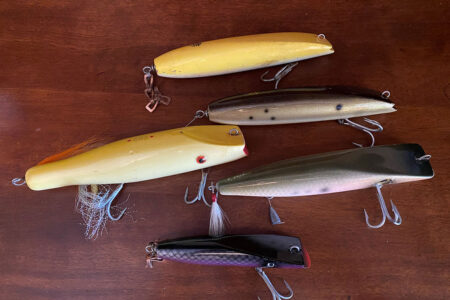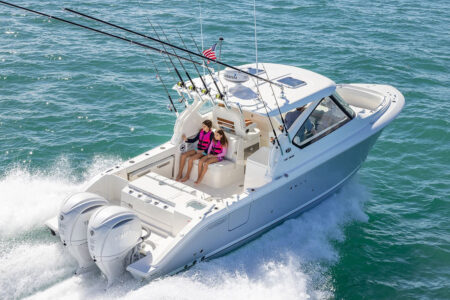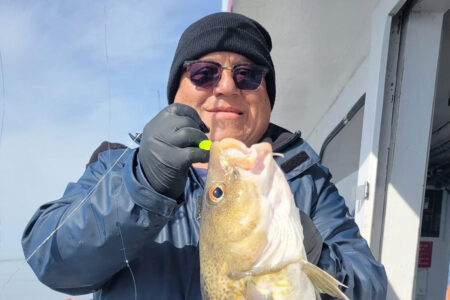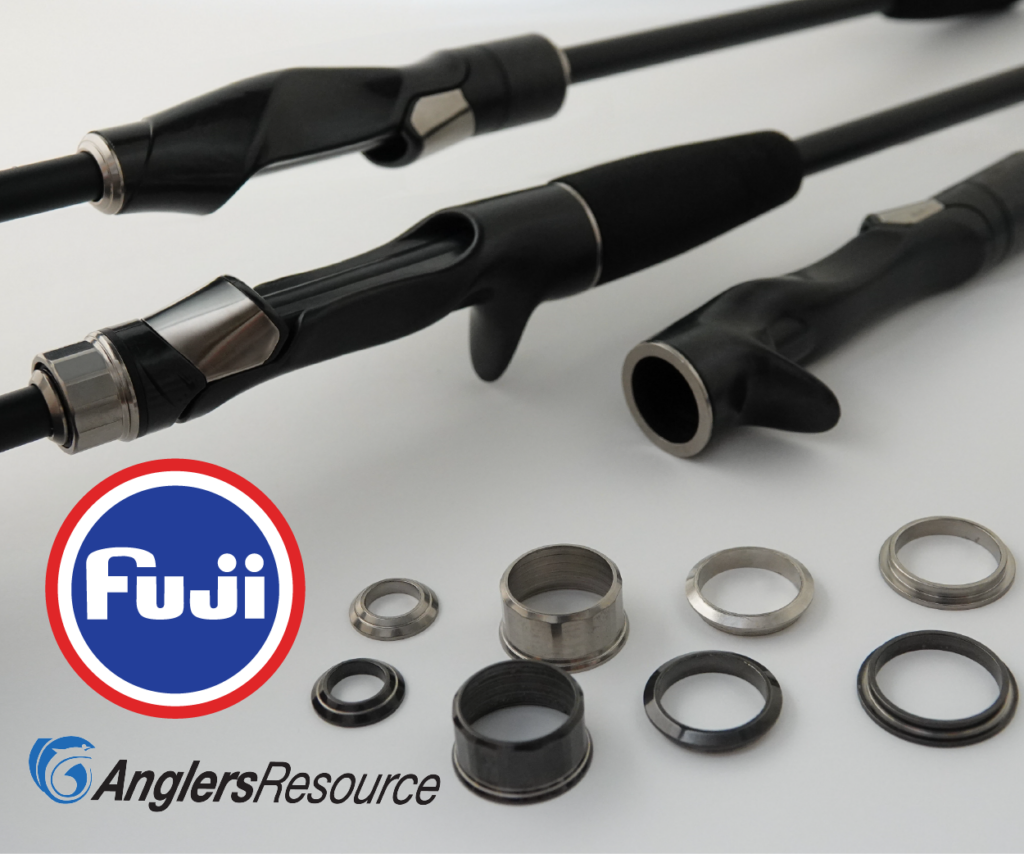To say that the fishing world of today is different than it was 20 years ago would be an understatement. As we all know things change with time and this concept applies very much to fishing. Not only are there more people getting involved with the sport we love, but technology and innovation have accelerated how we perceive and pursue our fishing. Whether you love it or hate it, it’s safe to say that technology and social media have made a huge impact on how, where, and why we fish living in today’s society. What I’ve noticed in the past few years could be summed up by looking at it as almost a tug of war between two thought processes.
Younger generations getting into the sport have limitless access to fishing knowledge within the likes of cell phones, YouTube channels, and social media outlets. Older generations however grew up learning knowledge that had to be obtained without the likes of the internet or cell phones to use as a resource. What this tells us is that the old school way of thinking is very different than the new. I personally tend to think of myself as falling in the middle of these two ideologies but it still beckons the question where do we stand and how can we overcome the gap? With the old school vs new school mentalities that drift amongst our fishing communities I asked myself what does it all mean and where do we go from here? The answer I found seemed to boil down to a concept of expectation versus reality. Let’s explore this topic a little further.
The YouTube Sensation
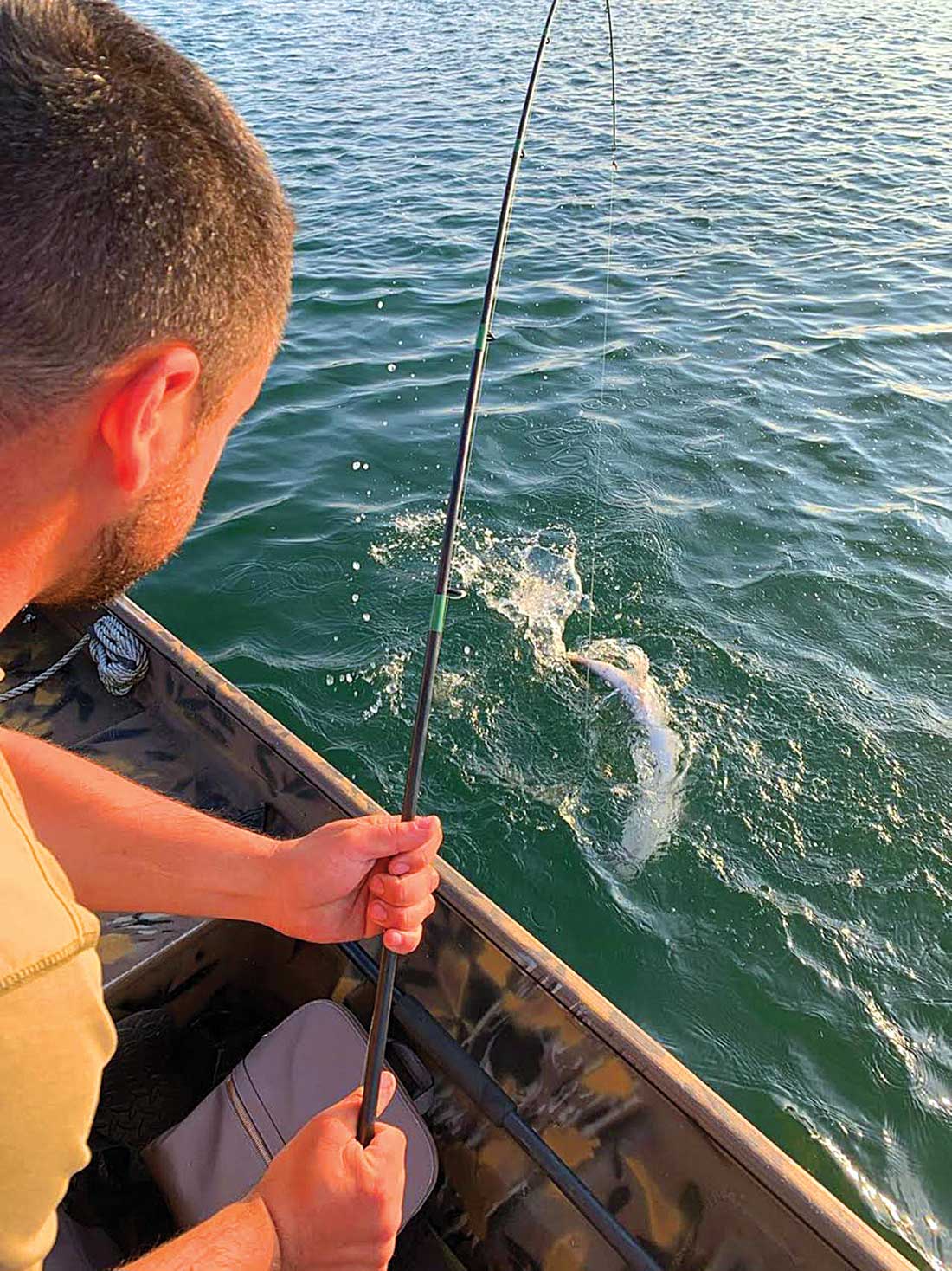 No matter where you’re from and no matter how you fish I am almost certain that somewhere there is someone with a YouTube channel showcasing it. While I find the popular fishing YouTube channels to be entertaining and also sometimes informative, I’ve noticed some trends concerning these videos and the perception that often follows them. Something I see a lot is the displaying of excellent fishing every time the host uploads a new video, which in a way can be misleading. I say misleading because it’s a false reality. What we see in these videos as a finished product is usually an angler catching a lot of fish, or very big fish in the span of a few minutes. You may be asking yourself, so what’s the big deal? I mean c’mon the whole purpose of the video is to show some cool fish catching footage in a way that is entertaining and captivating, right?
No matter where you’re from and no matter how you fish I am almost certain that somewhere there is someone with a YouTube channel showcasing it. While I find the popular fishing YouTube channels to be entertaining and also sometimes informative, I’ve noticed some trends concerning these videos and the perception that often follows them. Something I see a lot is the displaying of excellent fishing every time the host uploads a new video, which in a way can be misleading. I say misleading because it’s a false reality. What we see in these videos as a finished product is usually an angler catching a lot of fish, or very big fish in the span of a few minutes. You may be asking yourself, so what’s the big deal? I mean c’mon the whole purpose of the video is to show some cool fish catching footage in a way that is entertaining and captivating, right?
This concept gets a bit muddled in my opinion because like anything that is filmed, what the audience does not see is the work and time spent to get a few minutes of great fishing on film. Sometimes videos are weeks if not months of compiled footage that was edited down, and then edited some more to fit within a segment that is not even half as long as the original footage. What we don’t see are the hours upon hours of the angler NOT catching fish. The point here is that sure the fish catching final product makes for great entertainment, it only tells half the story.
Why does any of this matter? Well for one that’s a lot of time spent fishing for the sole purpose of putting the experience behind a camera lens. It just seems to me that as of late, I’m seeing more and more anglers filming their fishing experiences because it’s the thing to do. While that’s all well and good I also feel these anglers are losing the essence of what it was that made them love fishing in the first place. To be honest, at what point did we let the need for James Cameron like footage to consume us over the simple enjoyment of just going fishing?
Trust me I’m not trying to knock it if that’s really what you’re into because I love watching entertaining videos and I think most who do it well create good material. Personally however, fishing has always served as a great escape from our technology filled world and I think we shouldn’t lose focus of that. Also, I just don’t have it in me to pursue my passion for fishing as a film studies project.
Fish Hard
Okay so here’s where some of that old school mentality comes back into play. Sure all the YouTube and social media stuff looks great when you see it, but how often does the audience consider what the actual angler is doing to catch that fish of a lifetime? This is important because it doesn’t matter how popular a person is on social media or YouTube, the simple fact is you cannot catch a lot of fish or big fish without putting in some time. There’s an old saying that goes something like “1% of fishermen catch 99% of the fish” and honestly there’s no better way to put it. Guys that hit the water hard and often are the ones who catch a lot of fish, with or without the cameras, but what about anglers that don’t have the time to do so?
I hate to say it and I wish I had a better answer for this question but simply put, fishermen that consistently catch a lot of fish make time to do so no matter what their schedule dictates. Trust me I completely understand having life get in the way with dance recitals, soccer practice, and house upkeep just to mention a few, but those who want it badly enough will still make time for it. Yes I also agree that many of these types of fishermen are a rare breed, but to be consistently good at what they do the sacrifice has to come from somewhere.
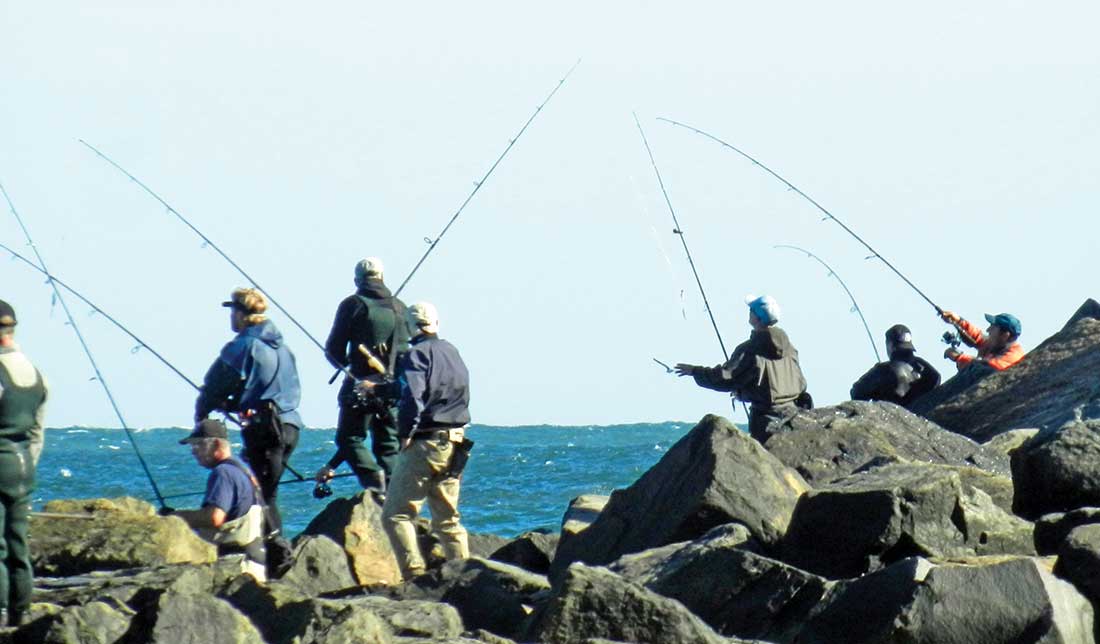
Now I am in no way suggesting nor am I telling you to give up time with family for fishing (trust me my wife would agree), I’m just simply explaining the effort that is needed to get to that level. That being said, fishing should be what you make it to be, and it should be fun. Every angler should also know their limits both physically and mentally. Keep your family’s well-being at top priority on the list before you even think about heading out to fish. Only you can be the judge of what will work best with your given lifestyle and why, but just know there’s always time to be made for a little fishing if you choose to make it happen.
Now to circle back to that old school new school debate we were having a moment ago brings up the concept of failure. I mention it because I feel as though this one applies more to the younger generations as well as beginners just getting into the sport. Social media has an ugly way of showing success without much trial and error, and this can be detrimental if we can’t see the difference. To put it simply, you must learn to embrace your failure. I’m not sure why failure is always deemed unacceptable in our society nor do I have an answer for it. What I will say however is that failure will happen no matter what we do in life (especially in the early stages of learning how to fish). How we choose to act accordingly will teach us some great lessons moving forward.
Failing is inevitable to some degree but how does it happen? Examples of this could be anything from taking the time to learn how to pursue a certain type of species, or perfecting techniques used for that said species etc. The point is it doesn’t take much thought or effort to show us how easily we can screw up. What you must consider when these obstacles come along however is what to do next. Stop worrying about what others may think and try to work through where you went wrong. Acknowledge the mistake, correct it, and learn.
In today’s society with countless amounts of information seemingly at our fingertips, learning how to correct our mistakes in fishing has become easier than ever before. Trust me when I say embracing that failure will mean so much more when you finally get it right. If you proactively keep at it, good things will eventually come.
Learn From Others
Now this point I’m about to bring up I feel applies to both old school and new in that we can always learn something from our fellow anglers. Take for instance a method I apply often to fishing when I’m out on my boat. More times than not I’ve found it to be beneficial to fish with someone who fishes like me for a few reasons. One reason is simply having the company of someone else which is nice, but the second has to do with applying different methods.
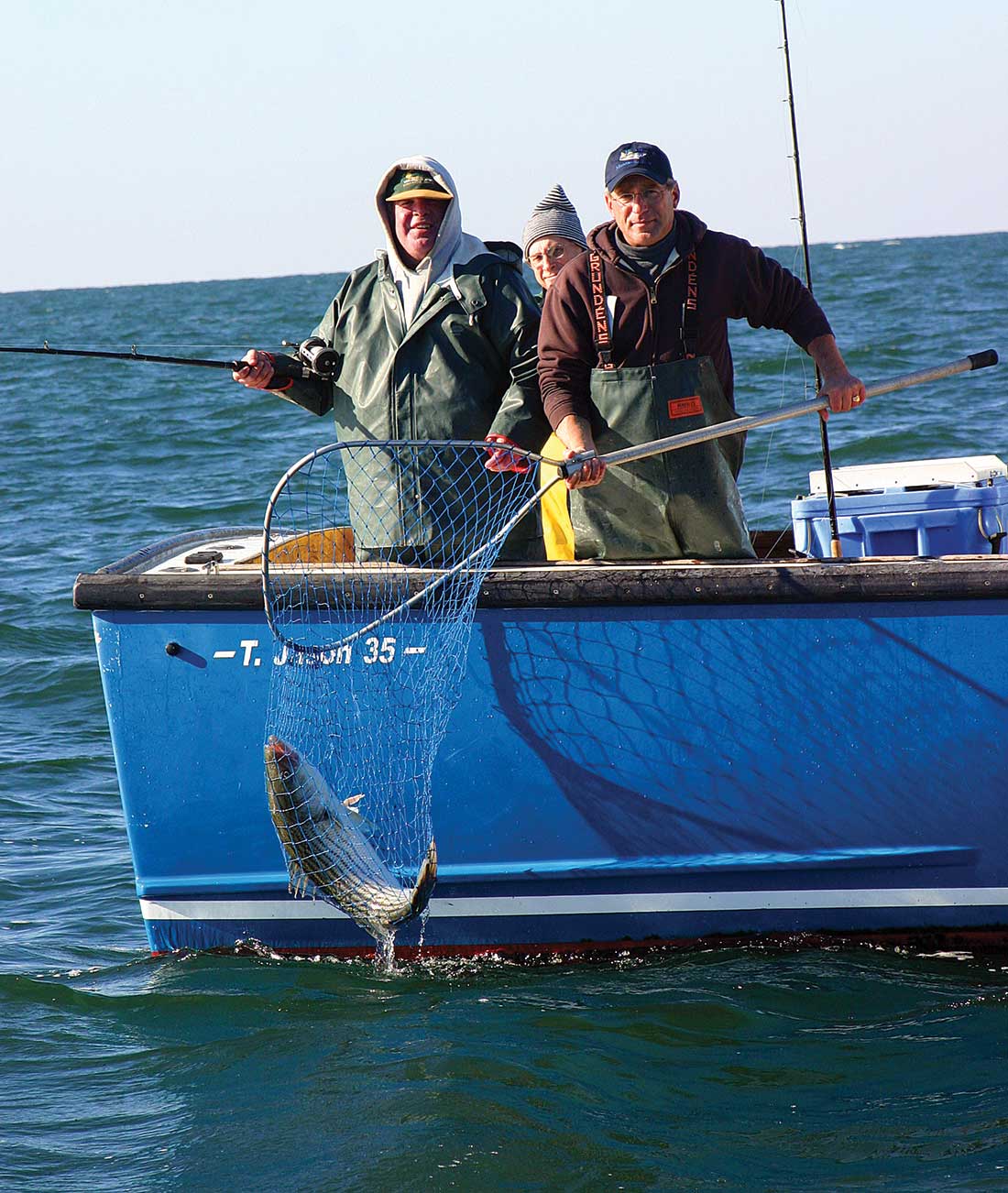
When I fish with a friend I tend to throw a different lure than he or she does, or fish in a different way. I do this because the chances of two people figuring out a bite is better than one, therefore throwing in some variety helps tenfold. I’ve also often found that our success rate increases when two alike minds fish differently. I can’t tell you how many times I’ve made fun of a friend for choosing to throw a certain lure or apply a certain technique that I thought would never work only to eat my words shortly after. If you fish with a friend, feed off of each other and try to meet in the middle. Team work makes the dream work and this is no different.
The third part of this concept has everything to do with our attitude towards fishing. I mention this because like anything else in life attitude will play a big part in our failure or success. I personally always strive to be learning something from each person I meet or fish with. If you are always looking for new knowledge no matter where it comes from, then being around and listening to more skilled anglers can be very beneficial. Let’s face it, no one ever knew everything right out of the gate when they started fishing, nor does anyone ever really know it all even when they get good at it. Learn to absorb information like a sponge, especially from those who are much better at it than you.
So is it safe to say that I’ve driven the point home yet? Like I mentioned before our expectations versus the actual reality of things can be very different from time to time. What’s important however is how we go about using the knowledge at hand and being open minded enough to learn something new. I can’t change how the world turns, but what I can do is take control over my own actions. Like I’ve said many times before and I will preach it here again, no time on the water is ever wasted. Learning from others and believing in your own problem solving abilities will without a doubt set you on the right path.
I guess the point here is to try and make your expectations line up with the reality of a situation even if at first they are different. If you find yourself looking at things from a new perspective the next time you’re out on the water, then I think this article has done its job. There’s a rewarding feeling to be had knowing we have the ability to create our own realities by simply following how we learn through our expectations.
